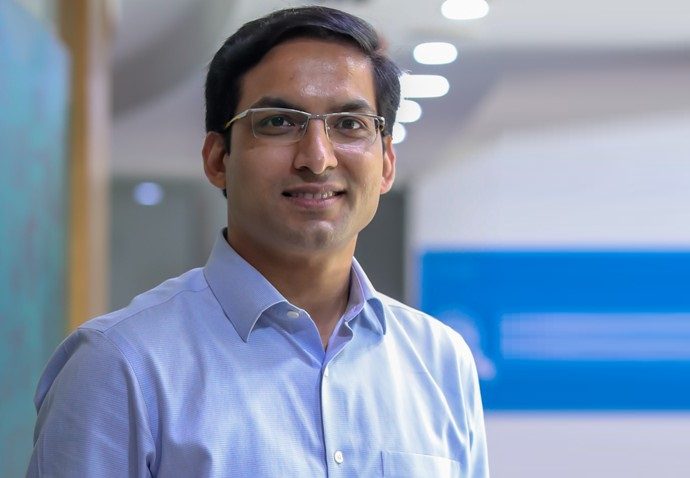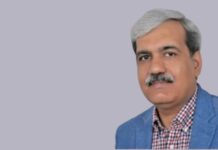
In a meeting room at 12 noon on Monday… Harry is sitting in a meeting room to attend an important project discussion, but he is failing to concentrate to listen to the conversation as he is still thinking about the issue he had to go over yesterday with his Boss on his performance on the last assignment. He is thinking of how he could have responded to him otherwise and was forming statements in his mind.
In the same meeting room, Amy, is intermittently checking her messages as she had posted a few of her international vacation pictures this very morning on Facebook and looking to see how many people have reacted and responded to those pictures. She is simply losing her concentration to listen to what is being communicated in the meeting.
How many times do you observe yourself or complain about being in this kind of situation? We are so much engrossed in “doing” that we don’t get time for “being” at the moment. Our minds are constantly meandering; we are often physically present at a meeting or discussion but mentally elsewhere.
This entire process is quite draining as it takes away a lot of productive energy from us into things which are either have happened and we cannot make any changes to them now or to happen in the future which is yet to be seen. It’s always good to reflect on the past for learning and also preparing for the future but for that, there should be a separate time allotted which is meant for carrying out this kind of reflection or thinking.
Distractions arise either through our internal dialogues or through external objects. With the advent of technology, our distractions have gone up significantly primarily due to cell phones, tablets, emails, texts, WhatsApp messages, social media, etc. In our fight for survival in a competitive world, our internal dialogues are diverting our minds to wander in our troubled past or uncertain future, taking away our sense of being in the present.
How big is this problem? According to research articles, our mind wanders 46.9 percent of the time. In other words, we focus on our tasks a little more than 50% of the time we assign to it. This also means that our business is losing on effectiveness due to limited concentration. The loss in productivity resulting from limited focus underlines the importance for leaders and people in organizations to be mindful.
MINDFULNESS IS AN ART OF STRIVING TO FOCUS ON THE PRESENT – being at the moment “here and now”. Our conscious level mind tries to fill any emptiness with internal dialogue by dwelling on the past or future. Not taming our mind results in it going into an autopilot mode.
Our mind continues to be noisy even when things are calm in the external world, resulting in emotional instability. When we keep ourselves engaged in internal dialogues, we lose a lot of energy and peace. This impacts our emotional and intellectual well-being; our productivity reduces, and our ability to manage our emotions depletes.
Besides, even in a rattling situation, we manage emotions better and don’t let the issue impact our mind or emotions. At the workplace, we have various experiences with people which impact us both mentally and emotionally. Mindfulness is not just helpful in being at the moment but it also helps in enhancing our ability to being resilient. It makes us be a rationale. The resilience power helps us manage the stress better and we look at the situations objectively.
Hence it is important that we shift to moving our mind to the present. When we focus ourselves on the quietness of the mind without the temptation to stray, we live the very core purpose of our existence, the purpose of being at peace, happiness, and love.
In the spiritual world, mindfulness meditation enhances the power of concentration, peace, and happiness for practitioners. In real life where one is dealing with pressing situations, it is highly recommended to pause from the daily schedule for two minutes periodically to experience being in the moment and observe the feelings, and emotions of self as an observer. Mindfulness is not an ultimate purpose; it is the journey of being oneself.
We know that we have no control over our past and yet, we keep thinking about it and lose a lot of energy. In Hindi, we refer to the past as “bhoot-kaal”. The word Bhoot indicates an entity that has no life or existence. Any reflection of the past that is done without being emotional, and with the sole purpose of learning from previous lessons is constructive, and will not drain your emotional resources.
Similarly, our future isn’t ours for the taking. Our lives may come to an abrupt halt at any given moment for us to even experience next dawn.
The moment we realize that both past events and future events are distractors, we are better equipped to concentrate on the present moment; our efficiency and effectiveness double and our tasks become more productive and effective.
Practicing Mindfulness
Some principles and practices which can enable us to be mindful are listed below –
- When you wake up in the morning, spend a few minutes meditating. This could be in the form of breathing exercise or following a guided meditation.
- While doing or performing any activity, just concentrate on the same and don’t let your mind wander elsewhere. For example, if you are brushing your teeth, observe the process, feel the brush and experience the overall activity.
- Try not to overload yourself with a lot of information. Social media, in today’s age, provides a lot of information that is mostly noise. As far as possible, avoid your exposure to negative information during the early hours of your day. This includes reading newspapers in the morning as newspapers thrive on negative information, and the information you consume stays with you.
- While at work wherever your mind is taking you to a past event or to some anticipated future event, bring it back and promise to spend time on the topic it is taking you to. Reserve sometime during the day when you could reflect upon these events with some constructive objective. This also means that you don’t let your mind wander on these events or topics again after you are done with reflecting.
- Remind your mind that you have no control over the external world but on the inner world. People will not be your way; you just need to accept this instead of getting angry with people or situations. When you get angry, the mind accelerates the thinking and becomes noisy.
- Last but not least, take regular pauses during the day. Close your eyes, focus on the emptiness of the mind, observe your breath for concentration. Be in this state for two minutes. This will help you recharge yourself and you will become much more effective, calmer and energetic.
Initially, the process of practicing mindfulness would appear frustrating as you will continue to have thoughts appearing from all over. Instead of fighting the same, just observe them as a neutral person and don’t judge or evaluate them. Gradually you will realize that you have gained expertise in this process of being “here and now”.








